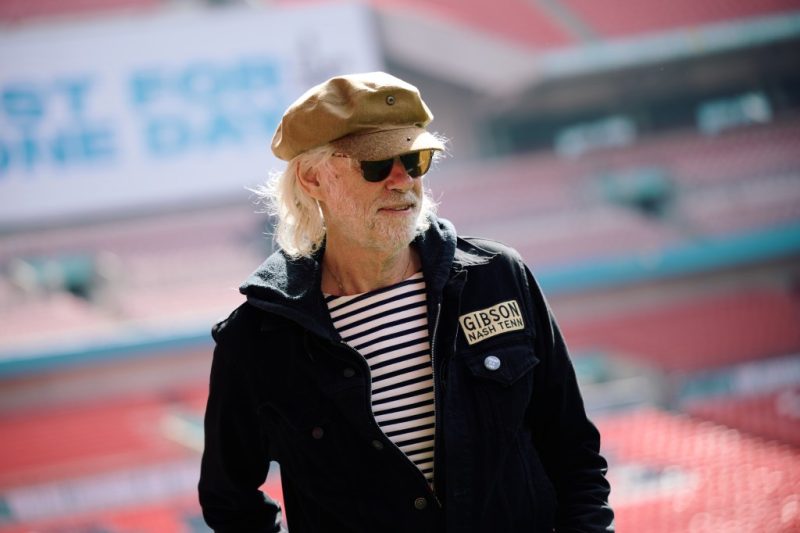
Forty years after Live Aid’s iconic performance, Bob Geldof’s reflections are far from celebratory. The event, which galvanized the world in its fight against famine in Ethiopia, now serves as a poignant backdrop to Geldof’s stark critique of contemporary political figures and the state of modern charity. In a recent interview, he didn’t shy away from expressing his disappointment, directly calling out the actions of Elon Musk, Peter Thiel, and Donald Trump as “thuggery.” This strong condemnation highlights a growing concern for Geldof: the very notion of charity seems to be in crisis.
Geldof’s disillusionment extends beyond individual personalities. He questions the current landscape of charitable giving, suggesting that it has become “almost an embarrassment.” This sentiment speaks to a larger shift in global politics and philanthropy. The inspiring unity witnessed during Live Aid, where nations collaborated to address a shared humanitarian crisis, seems a distant memory in the face of today’s fragmented and often polarized world.
The contrast between the collaborative spirit of 1985 and the current political climate is striking. Geldof’s comments serve as a powerful reminder of the challenges faced in maintaining global compassion and effective humanitarian aid in an era defined by political division and the rise of populist leaders. The question remains: how can the spirit of Live Aid – its global empathy and collaborative action – be rekindled in a world increasingly characterized by discord and cynicism?
The anniversary of Live Aid isn’t simply a nostalgic look back; it’s a call to action. Geldof’s pointed criticism serves as a wake-up call, prompting us to reflect on the state of global charity and the responsibility we all share in fostering a more compassionate and collaborative future. His words challenge us to consider how we can move beyond the “thuggery” of divisive politics and rediscover the unifying power of collective action for a greater good.










